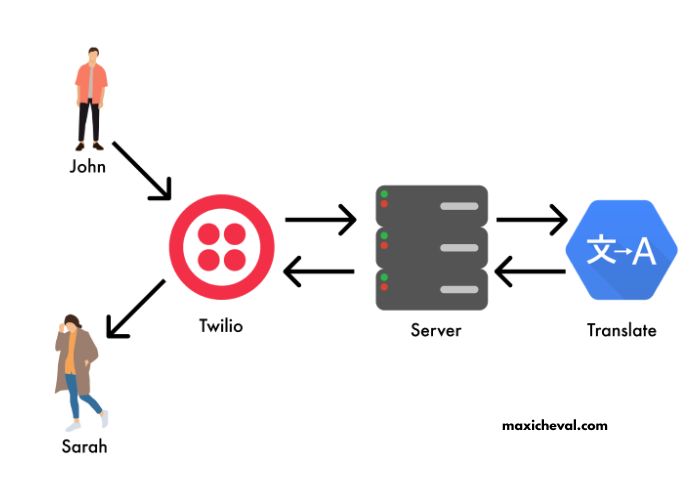In the annals of technological progress, the emergence of artificial intelligence (AI) stands as a watershed moment. Often portrayed as the “Rise of the Machines,” AI’s ascendancy has raised both anticipation and trepidation in equal measure. As AI continues to evolve, its impact on technology is profound, reshaping industries, redefining human-machine interaction, and posing novel challenges and opportunities. This article explores the multifaceted facets of AI’s impact on technology, from its transformative influence to the ethical and societal considerations that accompany this paradigm shift.
The Genesis of Artificial Intelligence
Before diving into the implications of AI’s rise, let’s briefly revisit its genesis. AI, as a field of study, began in the mid-20th century, with pioneers like Alan Turing laying the theoretical foundations. Early AI research focused on symbolic reasoning and rule-based systems. However, it was the advent of machine learning – a subset of AI that involves training computers to learn from data – that catalyzed the rapid growth of AI.
Machine learning, and particularly deep learning, has become a linchpin of contemporary AI. These techniques allow computers to recognize patterns, make predictions, and perform tasks that were previously the exclusive domain of humans. The resurgence of neural networks, thanks to advances in computing power and data availability, has empowered AI systems to tackle complex problems, from image and speech recognition to autonomous vehicles and medical diagnosis.
Transforming Industries
One of the most palpable impacts of AI on technology is its transformation of industries. Here’s a snapshot of how AI is reshaping key sectors:
Healthcare
In healthcare, AI is a game-changer. Machine learning algorithms can analyze vast datasets of medical records, imaging scans, and genetic information to aid in diagnosing diseases, identifying treatment options, and even predicting patient outcomes. IBM’s Watson, for example, can sift through millions of pages of medical literature to assist doctors in making informed decisions.
Robotic surgery is another promising frontier, where machines guided by AI can perform delicate procedures with unparalleled precision. Companies like Intuitive Surgical have developed robots such as the da Vinci Surgical System, which have been used in thousands of surgeries worldwide.
Finance
The financial sector has embraced AI for risk assessment, fraud detection, and trading. AI algorithms can analyze market data at speeds beyond human capacity, executing trades in microseconds. Hedge funds and investment firms increasingly rely on AI-powered predictive models to inform investment decisions, giving them a competitive edge.
Manufacturing
AI-driven automation is revolutionizing manufacturing. Smart factories employ AI-powered robots and sensors to optimize production processes. These machines can adapt to changing conditions and self-diagnose issues, reducing downtime and enhancing efficiency. Companies like Tesla employ AI extensively in their manufacturing facilities, enabling them to produce electric vehicles at scale.
Transportation
Transportation is on the cusp of a major transformation, largely thanks to AI. Self-driving cars, buses, and trucks promise safer, more efficient roadways. Companies like Tesla, Waymo, and Uber are leading the charge in autonomous vehicle development, leveraging AI to navigate complex environments and make real-time decisions.
Retail
In the retail sector, AI is being used for personalized marketing, inventory management, and customer service. Recommendation systems, like those used by Amazon and Netflix, analyze user data to suggest products or content tailored to individual preferences. AI-powered chatbots and virtual assistants enhance customer interactions, providing 24/7 support.
Agriculture
AI is enhancing agriculture’s efficiency and sustainability. AI-driven precision agriculture uses drones and sensors to collect data on crop health, soil conditions, and weather patterns. This data informs decisions on irrigation, fertilization, and pest control, optimizing crop yields and reducing environmental impact.
These are just a few examples of how AI is revolutionizing industries. Its ability to analyze vast datasets, make predictions, and automate tasks is unlocking new possibilities and efficiencies across the economic spectrum.
Human-Machine Collaboration
While AI’s transformative potential is undeniable, it’s important to recognize that it’s not simply about machines replacing humans. In many cases, AI is enhancing human capabilities and facilitating collaboration between humans and machines.
Augmented Intelligence
The concept of augmented intelligence acknowledges that AI can enhance human intelligence rather than replace it. For instance, doctors can use AI tools to assist in diagnosing complex diseases, lawyers can leverage AI for legal research, and scientists can employ AI to analyze large datasets in their research.
Creative Partnerships
AI is also a creative partner. Artists and musicians are using AI algorithms to generate new art and music styles, providing fresh perspectives and creative possibilities. AI can assist in design and architecture by generating innovative concepts based on input parameters.
Decision Support
In business, AI provides decision support systems. These systems analyze data to help executives make informed choices. They can predict market trends, recommend pricing strategies, and optimize supply chain logistics.
Automation of Repetitive Tasks
AI’s proficiency in automating repetitive tasks allows humans to focus on more complex and strategic aspects of their work. In customer service, for instance, chatbots handle routine inquiries, freeing up human agents to address more challenging issues.
Enhancing Safety
In dangerous or physically demanding industries, AI-driven robots and drones can take on tasks that are hazardous for humans. For instance, robots are used for tasks like bomb disposal and deep-sea exploration.
This collaborative model, where AI augments human abilities and handles routine tasks, offers a path to greater productivity and innovation.
Ethical Considerations
The ascent of AI technology is not without ethical and societal concerns. As AI’s role in shaping technology deepens, so does the need for responsible and ethical development and deployment.
Bias and Fairness
AI algorithms can inherit biases from the data they are trained on. For example, if historical data contains biases against certain groups, AI systems can perpetuate and even exacerbate these biases. This has far-reaching implications, especially in applications like criminal justice, lending, and hiring, where biased decisions can have severe consequences.
Addressing bias and ensuring fairness in AI systems is an ongoing challenge. Ethical AI practices, such as data auditing, diverse training data, and transparency in algorithms, are vital to mitigate these issues.
Privacy
AI’s ability to process vast amounts of data raises concerns about privacy. Personal information can be used to create highly targeted advertisements or make predictions about individuals’ behavior. Striking a balance between the utility of AI and safeguarding individuals’ privacy is a pressing concern.
Job Displacement
The automation potential of AI has led to concerns about job displacement. While AI can create new roles, there is a risk of job disruption, particularly in industries heavily reliant on manual labor. Preparing the workforce for the AI-driven future through education and retraining programs is essential to mitigate these challenges.
Accountability and Transparency
As AI systems make critical decisions in various domains, issues of accountability and transparency arise. Who is responsible when an AI system makes a mistake or behaves unexpectedly? Ensuring clear lines of responsibility and transparency in AI decision-making processes is a complex but crucial endeavor.
The Future of AI and Technology
The trajectory of AI and its impact on technology is poised for further growth and evolution. Here are some key trends to watch for in the coming years:




